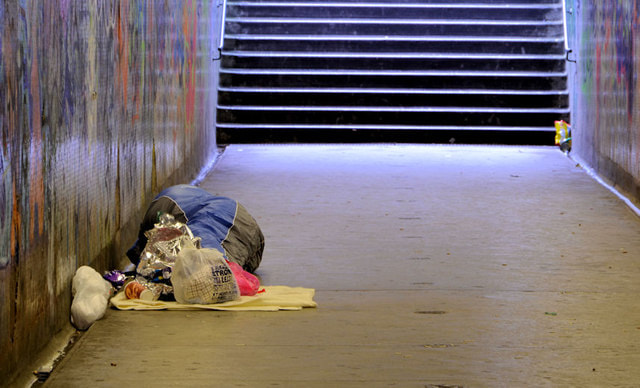|
Violent youth crime won’t change until we start speaking about it differently. We need to recognise the psychosocial factors that contribute towards violence and the ineffectiveness of our current response towards crime Alex Lloyd
In the past 18 months, the UK has seen a spike in violent crime. Recent figures released by the Home Office suggest that offences involving knives have increased by two thirds since 2014. The use of these weapons by young people against other young people, in particular, is rising. Although the issue has been addressed by the media and politicians, discussions have focused on criticising police cuts and promoting tougher sentences for individuals caught carrying offensive weapons. This public narrative doesn’t include consideration of how wider social and psychological factors impact the act of committing a crime. When knife crime is reported to the public, the emphasis is almost solely on the incident itself. Media outlets spare no detail recounting the events and condemning the perpetrators for what is seen as a senseless act of violence. In political debates, these incidents of violence have been used to highlight the impact of austerity, including police having reduced capacity to deter and respond to these events. While some journalists have highlighted the closure of youth clubs as a relevant precursor to the upsurge in crime, this consideration of broader context tends to be the exception rather than the norm. For the most part, the media decontextualizes acts of violence from the wider influences on behaviour - the conversations only begin in the moment a crime is committed. The myriad other influencing factors remain in the margins. Yet, there is a large body of evidence to suggest that offending behaviour can have its roots long before the act occurs. Young people who are exposed to Adverse Childhood Experiences (ACEs), such as physical, verbal or sexual abuse, or whose parents are in prison or going through divorce are more likely to become involved in crime. And, though we are all susceptible to experiencing ACEs, poverty acts as a risk factor - people living in the most deprived areas report the highest levels of ACEs. The more ACEs a young person has, the more likely they will be criminally involved by the time they reach their teenage years. This evidence shouts loudly that youth violence is influenced by factors that emerge or are present long before the act of crime itself. It is clear that current narratives focusing only on the act of violence itself are ignoring a range of social and psychological factors that are also a part of each young person’s story.
0 Comments
The continued attack on the welfare state under this government is being held up to international scrutiny and demands a response from psychologists PSC welcome the report by Philip Alston, United Nations Special Rapporteur on Extreme Poverty and Human Rights, on his visit to the United Kingdom. Although issues of causality are complex, there is significant evidence on the relationship between poverty, inequality and mental health difficulties. This report highlights the suffering that has been inflicted through the callous approach to austerity taken by the government since 2009.
It also recognises and gives voice to the impact that Universal Credit is having on people’s mental health, finances and work prospects. The continued attack on the welfare state under this government is being held up to international scrutiny and demands a response from psychologists. Many professions have been drawn into pushing the austerity agenda, including psychologists. It is important to recognise ours' and others' roles, including psychology’s continuing contribution to exploitation and oppression in the form of ‘enhanced interrogation’ and workfare. However, this report gives a firm foundation to organise around. In particular: 1) Austerity is not over and we still need to highlight it's pernicious effects 2) Universal Credit should be scrapped and we need to work with activists towards this goal 3) The continued cuts to local authorities are eroding a sense of community. Psychologists and others in positions of power working, purportedly, alongside those with less power, need to reach out to other professionals and activists and continue to work towards a just future that fulfils our commitments to truly promoting mental health and well-being. |
AuthorPSC is a network of people interested in applying psychology to generate social and political action. You don't have to be a member of PSC to contribute to the blog Archives
February 2022
Categories
All
|
PSYCHOLOGISTS FOR SOCIAL CHANGE
- Home
- About
-
Groups
- Blog
-
Position statements
- UK >
-
Cymru / Wales
>
- Consultation Responses
- Housing Support Funding
- Connecting the Dots Report
- Chemical Imbalance Myth
- Review of use of dx PD
- UK Inhumane Removal Plans
- WG LGBT+actionplan
- Ty Coryton
- Commission on Race and Ethnic Disparities: The Report
- ECT Review
- Black Lives Matter
- COVID 19 and Internet Access
- Save the T4CYP Programme
- Support the Mind over matter Report
- UN Report on Extreme Poverty in the UK Letter
- England >
- Ireland >
- Northern Ireland
- Scotland
-
Campaigns
- Join our mailing list


 RSS Feed
RSS Feed
